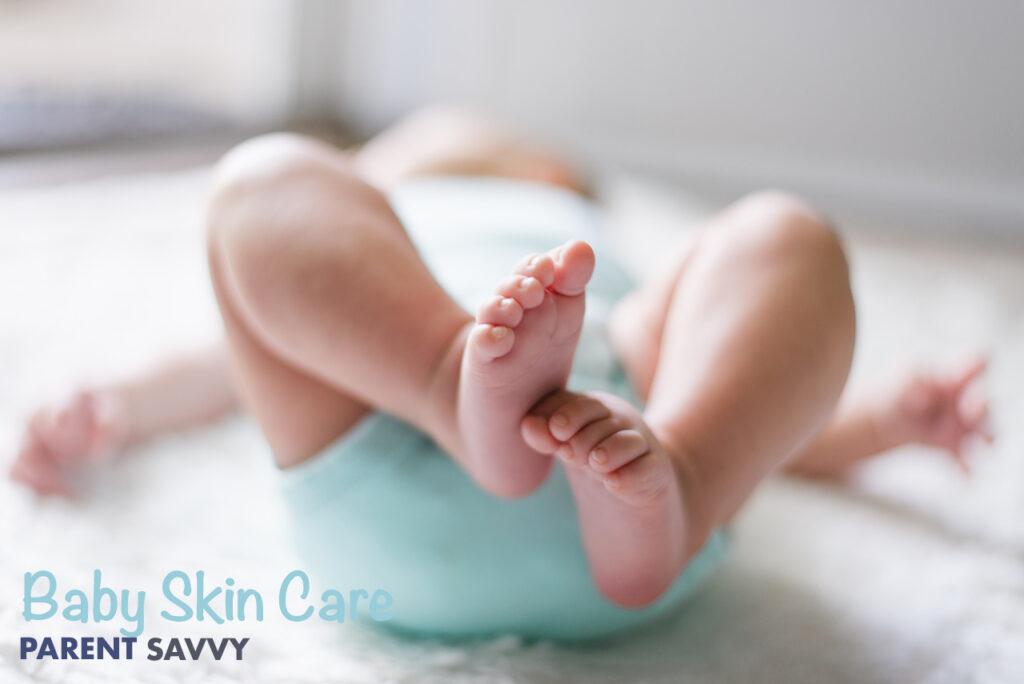
Newborn babies have delicate skin.
Excessive washing, chemicals, detergents, fragrances, dyes in clothing and even baby products can cause newborn skin dryness, irritation, rashes and chafing. However, there’s much you can do to protect and care for your baby’s delicate skin.
Natural and Simple Skin Care
A newborn baby is born with wrinkly skin and a protective film called vernix. Vernix naturally peels off during the first week and there is no need to rub it or treat it with lotions or creams.
The best newborn skin care follows the adage that “less is more.” The tips below can help protect newborn skin from developing rashes and allergies:
- Do not bathe your baby too frequently. Contrary to popular thought, babies do not need a bath every day. Except for diaper changes and drool, newborns do not get very dirty. Frequent bathing is considered more than three baths a week during the first year of life. Too many baths may remove natural protective oils, leaving your baby’s skin vulnerable and dry. Instead, only bathe your baby a couple of times a week, and in between, simply clean baby’s mouth or diaper area with a water, a wet washcloth or baby wipes. Once a week baths or even less are best for newborns with darker skin tones. These babies often have dryer skin and a higher risk of skin conditions such as eczema.
- In the first few months, avoid scented baby products. These can irritate your baby’s skin with the chemicals found in fragrances.
- Wash your baby’s clothing before using it. Launder your baby’s clothes, bedding and blankets with fragrance free and dye-free detergents.
Eczema
Eczema appears as an itchy, red rash normally on the face, scalp, elbows and behind the knees. Like other newborn skin problems, eczema often doesn’t develop until after the first month or two.
Tips for preventing eczema and dry, irritated skin:
- Try to bathe your baby only once a week
- Avoid baby skin products with fragrance. If your baby’s skin is dry, use only unscented ointment or lotion on dry skin areas.
- Dress your baby in soft clothing, preferably cotton.
Speak with your pediatrician about using over-the-counter lotions or creams to treat eczema. If your baby’s eczema worsens, you may need a prescription treatment.
Massage
The beauty of your baby’s skin sensitivity is how responsive your baby is to your touch. Your touch has a nurturing, soothing effect on your baby and also benefits his or her development.
Research reveals that massage not only communicates your love and affection to your baby, but also positively affects your baby’s health. Because a baby’s survival depends on being touched, touch has the power to boost immunity, fight diseases and trigger hormones. As a result, massaged babies may sleep better, cry less and be calmer.
To massage your baby, simply find a warm, soft place for your baby – in a bassinet or a soft blanket on the floor. Warm some baby oil or lotion in your hand and gently massage your baby’s chest and tummy. Speak softly to your baby and try to make eye contact.
This soothing one-on-one time can continue to foster the special bond you have with your baby.
If you have any questions or concerns about caring for your baby’s skin, contact your pediatrician.
